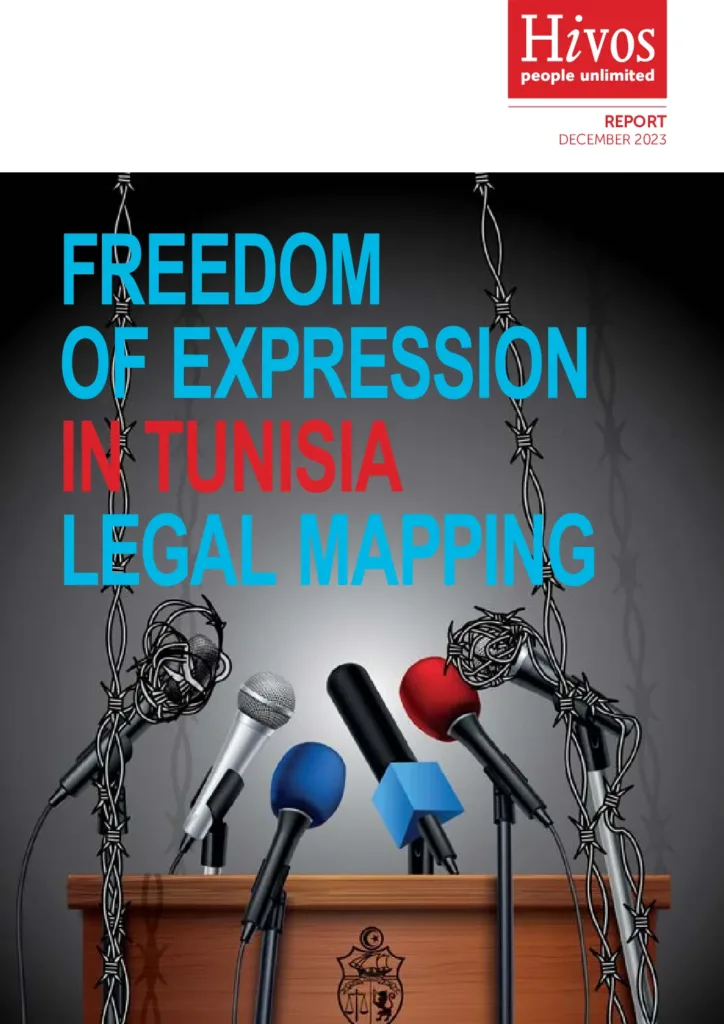This report maps and analyzes the laws and policies that impact freedom of expression in Tunisia.
Freedom of expression is a basic requirement of a vibrant democracy where members of society can take part in societal and political debates. It enables people to acquire knowledge, form their own opinions and exercise their human rights.
Over the last decade, Tunisia witnessed a major turnover after the fall of the 23-year-rule of autocratic Ben Ali rule. Since then, Tunisians have been participating in unprecedented, heated debates and expressing their opinions about politics and society through protests, publications, art performances, and other forms of expression.
This publication maps and analyzes the laws and policies that impact freedom of expression, notably those that regulate the press, the telecommunication channels, and state of emergency period. This analysis can inform strategic litigation and advocacy for legislative and policy reforms to protect freedom of expression in Tunisia.


